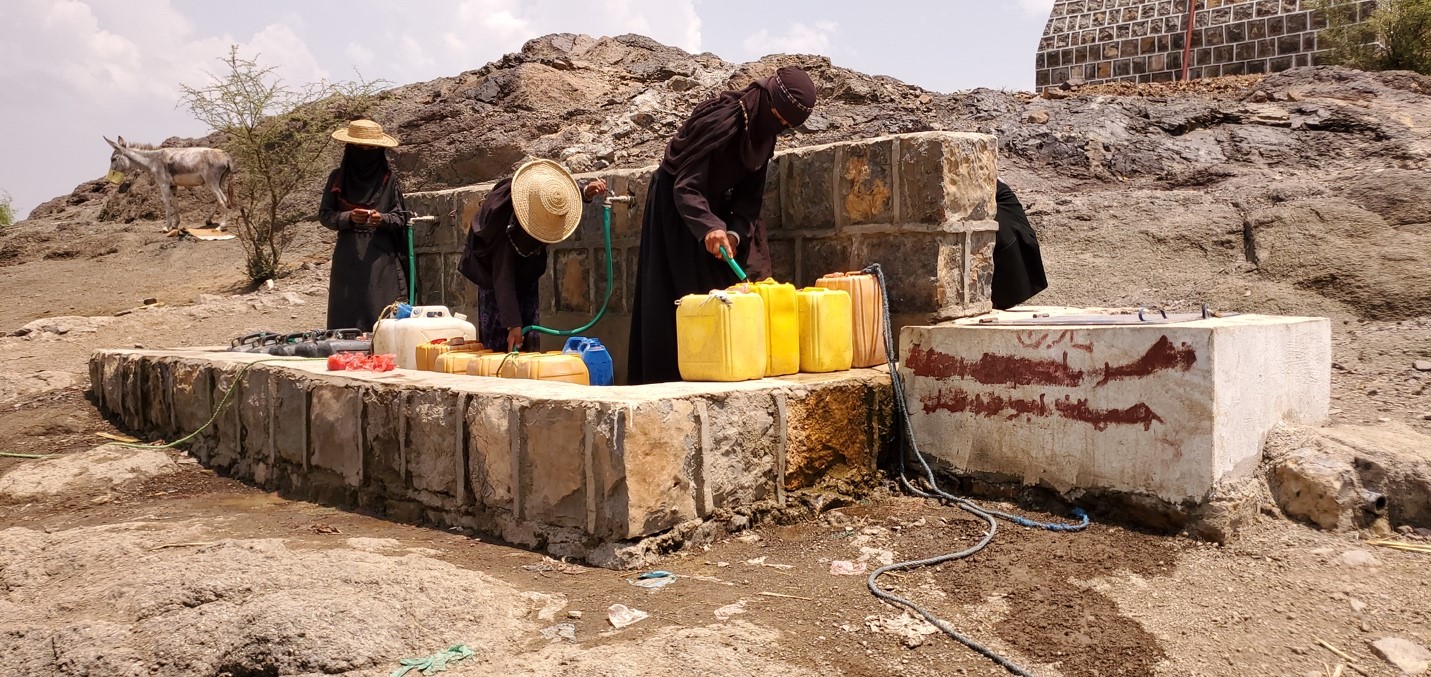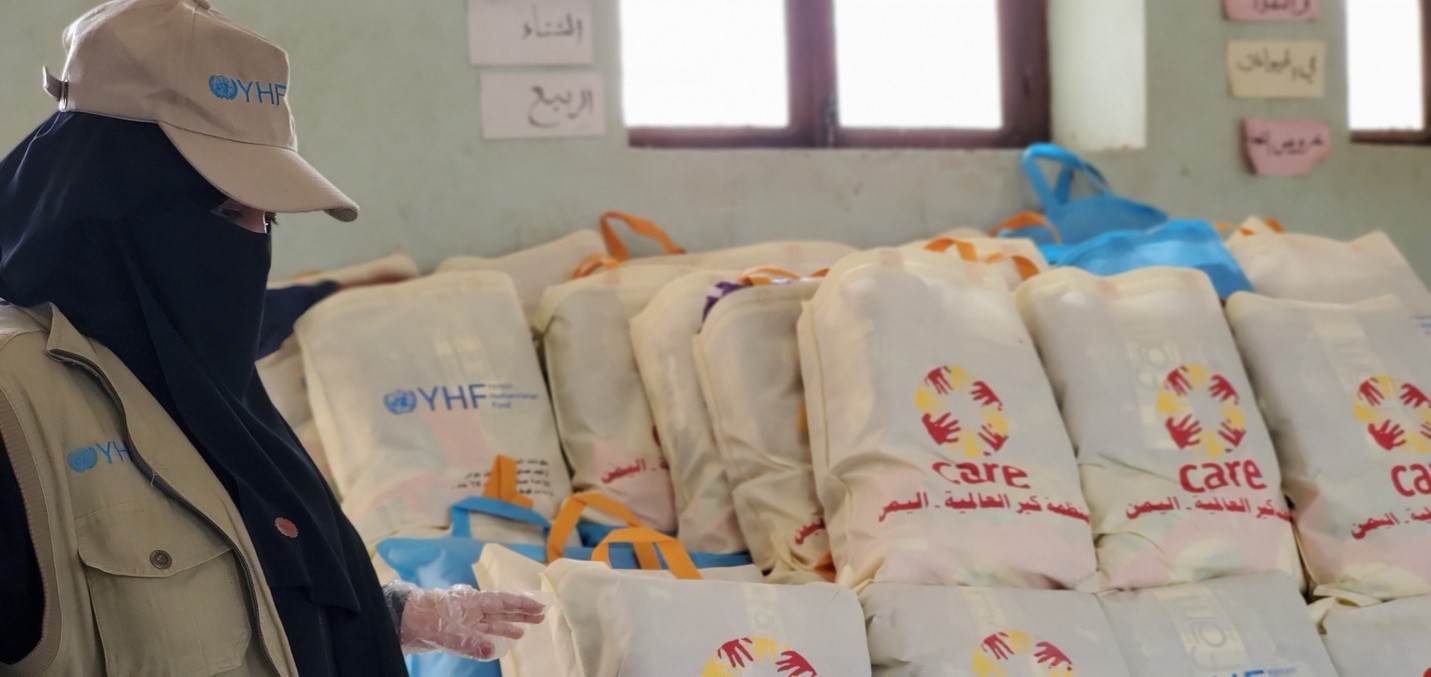Due to the ongoing conflict, more than 20 million people in Yemen are in need of water & sanitation services. In 2017 the country saw the world’s worst cholera outbreak in history, and vulnerable communities are still grappling with cholera as well as other disease outbreaks, food insecurity and an economic crisis.
Like many villages in the Yemeni countryside, Al-Methmar village of Swuyer district in Amran governorate lacked basic services – including access to clean drinking water. The population of Al-Methmar village have always struggled to secure sufficient water supplies. One elderly woman had to do that journey every day since she didn’t have any children to do it for her, and for children who have to do the journey it interfered with school attendance, meaning they missed out on classes.
“Girls and women are responsible for fetching water every day from the nearest source of water which is about 4km away from the village,” says Jamil Jomaan, a 25-year-old resident of Al-Methmar. “It takes them four hours to go and return and they have to do it two times a day, which means girls and women spend 8 hours every day to fetch enough water just for one day.” The trek to find water was not only long and exhausting, but women could also be subjected to harassment, abuse or other dangers.




